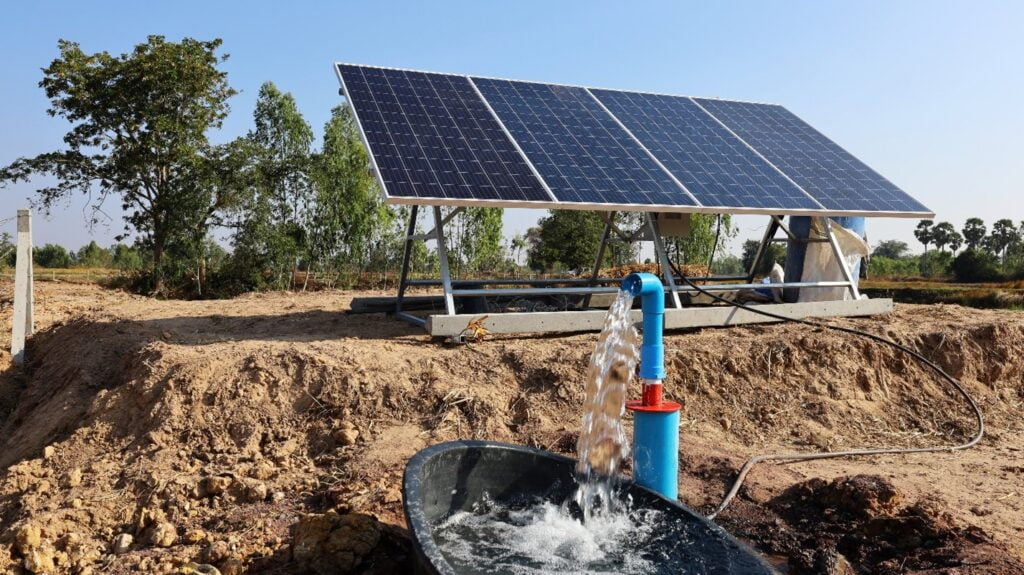Fuel price in Dar es Salaam, Tanga, Mtwara, and other regions in Tanzania is on the rise, contrary to falling trends, as they are set to increase this month following official price adjustments announced on Wednesday by the Energy and Water Utilities Regulatory Authority (EWURA).
According to EWURA’s public notice titled “Cap Prices for Petroleum Products” effective Wednesday, March 6th, 2024, the country’s fuel prices in March surged due to a rise in world oil prices (FOB) by an average of 4.5% for Premium Motor Spirits (PMS) or Petrol and 1.99% for Automotive Gas Oil (AGO) or diesel. The change is also attributed to a significant increase in the use of EURO for the payment of imported petroleum products. Breakdown of retail prices highlighted in the notice:
On a global scale, geopolitical tensions, such as US-led strikes against the Yemeni militant group of Houthis in the southern Red Sea and Iran, are cited among the reasons behind the global oil price hike. Despite a larger-than-expected build in US crude stocks, oil prices remained steady on Thursday.
Also, the ongoing Gaza war between Israel and Hamas has unsettled Middle East markets and the prospects of an increase in supply due to an expansion of producers outside OPEC. In January 2021, the petrol prices in Tanzania were as low as 1,834 tsh, and diesel was 1,695 tsh.
According to Reuters, “Oil prices slipped on Thursday as expectations that U.S. interest rate cuts could be delayed capped gains, though upbeat Chinese trade data augured well for demand in the world’s top oil importer. Brent crude futures slipped 42 cents or 0.5% to $82.54 a barrel by 1010 GMT, while U.S. West Texas Intermediate crude futures inched down 36 cents or 0.4% to $78.77 a barrel.”
Read related: Surging Oil Prices: Is it a Dead-end or Survival?
These rising costs may exacerbate the financial strain on families already facing tight budgets. Moreover, this recent surge will also intensify pressure on diesel users, particularly small businesses.
In response to the rising prices, some motorists in Dar es Salaam have devised a backup plan. Vehicles powered by Compressed Natural Gas (CNG) are becoming increasingly common. Many drivers have attested that CNG is cheaper and emits fewer pollutants.
One taxi driver named Honest Must told CGTN Africa, “To earn $40, a driver using petrol would spend at least $16 on fuel. You can’t compare that to someone using gas who spends just $8 and makes the same amount of money.” Another driver mentioned, “Now I can use my car’s air conditioning without worrying because I can afford it. I only use petrol to start my car.”
Research confirms that, as anticipated, fuel price increases are linked to higher inflation. The pass-through effect is smaller but more persistent in developing countries compared to advanced economies. This persistence ultimately results in a stronger impact of fuel price changes on consumer price levels in developing economies.
The increase in fuel costs will undoubtedly impact the supply chain, forcing vendors and suppliers to raise their prices to accommodate the fuel price surge. This will lead to higher expenses and lower profit margins, especially for transportation businesses. It could also compel businesses to adjust their prices to prevent shortfalls, potentially prompting customers to seek cheaper alternatives, significantly affecting sales.
At this juncture, predicting the effects of the conflict in Eastern Europe, supply chain bottlenecks, and sanctions on economies, prices, and supplies remains challenging. However, optimism remains as we vigilantly monitor the global economy.
So, What Does This Mean to Our Economy?
Imagine buying fuel now at 3,084 for Petrol, 3,078 for diesel, and 3,510 for kerosene. The price surge isn’t just a blip on the economic radar; it’s a seismic shockwave with the potential to reshape entire economies, particularly in developing nations like Tanzania.
First, let’s talk about the elephant in the room: inflation. Our Energy inflation rate since January has increased to 6.6% from 0.2% in the corresponding period 2023. When fuel prices soar, it’s like tossing gasoline onto the fire of inflation. Tanzania relies heavily on imported fuel, so when global prices spike, the cost of everything from transportation to basic goods shoots through the roof. Suddenly, your paycheck doesn’t stretch as far, and the price tags on essentials start to look more like highway robbery.
But it’s not just about the numbers on price tags but how those numbers impact people’s lives. Picture this: you’re a farmer in rural Tanzania trying to make a living from the land. But with fuel prices skyrocketing, running your irrigation pumps and transporting your goods to market becomes unsustainable. Before you know it, you’re staring down the barrel of bankruptcy, all because some oil tycoon halfway across the world decided to hike up prices.
And let’s not forget about the ripple effect on industries across the board. From manufacturing to transportation, businesses are feeling the pinch as their operating costs shoot up. That means they either have to raise consumer prices or eat the loss themselves. Spoiler alert: neither option is good for the economy.
Now, here’s where things get really hairy. Tanzania’s economy relies heavily on small businesses and entrepreneurship to drive growth and create jobs. But when fuel prices go through the roof, those mom-and-pop shops and budding startups start to feel like they’re fighting an uphill battle. Suddenly, dreams of economic prosperity start to feel like nothing more than a pipe dream.
But it’s not all doom and gloom. Tanzania has a history of resilience in adversity, which is no different. By investing in alternative energy sources, improving energy efficiency, and supporting local businesses, we can weather this storm and come out stronger on the other side. It’s time to roll up our sleeves, get creative, and show the world what we’re made of.
Where to Improve?
The increasing fuel prices pose a significant challenge to Tanzania’s economy, particularly in developing countries where fuel plays a crucial role in transportation, agriculture, and industry. As fuel prices rise, the cost of living increases, affecting everything from transportation fares to food prices. This disproportionately impacts low-income households, who spend much of their income on essential goods and services.
Tanzania’s heavy reliance on imported fuel makes it particularly vulnerable to global market fluctuations and geopolitical tensions. This dependence exposes the economy to sudden price spikes, disrupting supply chains and driving inflation. Moreover, high fuel prices can hamper economic growth by increasing business production costs and reducing consumers’ purchasing power.
Also, read Energy Challenges in Tanzania Amidst Global Fuel Crisis and Climate Change.
Tanzania must adopt a multifaceted approach to combat the adverse effects of fuel price surges. This includes investing in renewable energy sources to diversify the energy mix, promoting energy efficiency measures to reduce overall consumption, and supporting local businesses to withstand the impact of rising fuel costs.
Strengthening energy security through domestic production and storage capacity can help mitigate the country’s dependence on volatile global markets.




